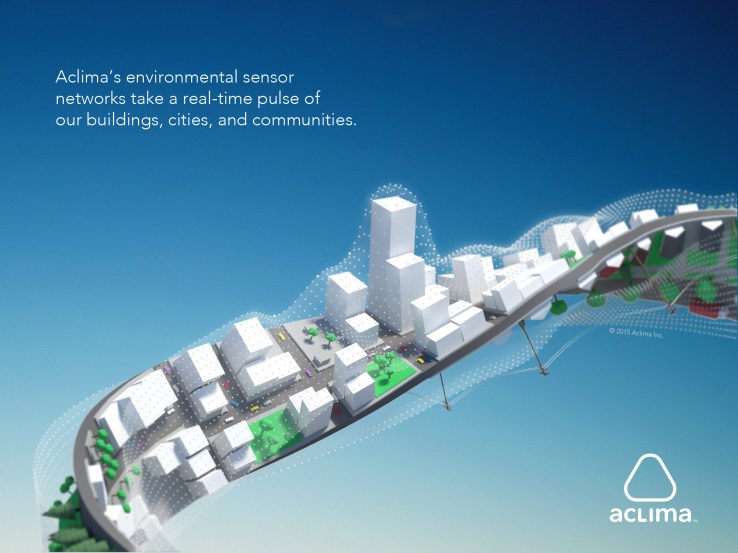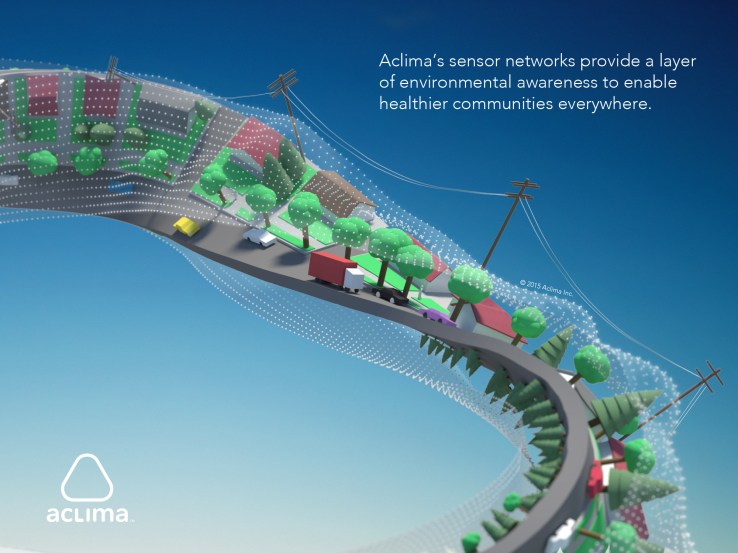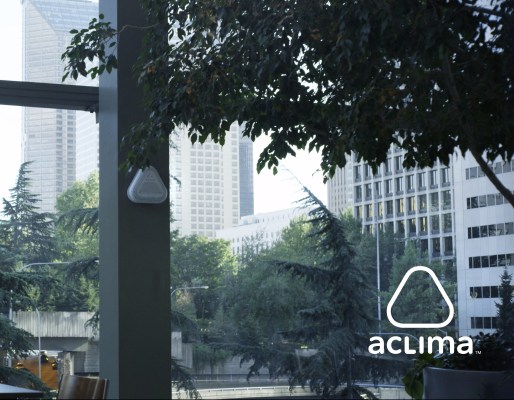Do Google employees breathe better air than the rest of us? That’s what San Francisco-based environmental health startup Aclima wants to know.
Aclima stayed hush about what it’s been up to for the last several years, but just announced it has been studying the indoor air quality on Google’s Mountain View campus and several other Google buildings throughout the world for the last several years.
The startup also announced partnerships with the Environmental Protection Agency and the Lawrence Berkeley National Laboratory to find out how the air around us affects our health.
Aclima uses a network of strategically placed sensors within building structures to monitor and analyze the air that we breathe. These sensors then send information to backend software that can update air quality information in real-time.

Each sensor can be customized to do things like map greenhouse gasses across a city or measure how much particulate matter is inside a building.
Environmental sensor networks have largely stayed within academia. However, Smart Citizens has a vast distribution of open-sourced environmental sensors placed all over the world – mostly in North America and Europe – that are programmed using Arduino-compatible hardware and a smartphone app to monitor the environmental quality.
Smart Citizens is more of a project for the people. Aclima is intended for large enterprises and government institutions.
The startup deployed a global indoor environmental sensor network of 500 devices across 21 Google offices around the world several years back, enabling the startup to process more than half a billion indoor air quality data points such as carbon dioxide emissions and particulate matter that affect Googlers’ lungs on a daily basis.
 Google is known for offering perks like massages, on-campus laundry, and free food. It’s also the home of out-there projects centering on life-extension and other health-related queries. It seems a natural fit for testing environmental air quality, too.
Google is known for offering perks like massages, on-campus laundry, and free food. It’s also the home of out-there projects centering on life-extension and other health-related queries. It seems a natural fit for testing environmental air quality, too.
Bringing a small scale sensor of this type to market will help us to effectively measure particle pollution, which has been linked to a wide range of serious health problems. Lara Gundel, Berkeley Lab
Google, with its vast, global office network, is also a good place to study the effects of climate change. “There’s actually a scarcity of measurement,” Aclima co-founder Davida Herzl told TechCrunch. “And that data can drive change in entirely new ways.”
Measuring those local patterns in the atmosphere can lead to discoveries about human health in surrounding environments. The E.P.A. and Berkeley Lab are keen to work with Aclima to pinpoint how emissions affect public health such as asthma and breathing issues.

“Bringing a small scale sensor of this type to market will help us to effectively measure particle pollution, which has been linked to a wide range of serious health problems,” Berkeley Lab’s Dr. Lara Gundel said.
Lung health can also be affected by a work environment that is closer to heavy traffic or even building management practices. Knowing how what we breathe affects our long-term health can help us make changes for the better in our environment.
“There is absolutely an influence. Buildings are not just these static containers. They live in systems, and these systems are our cities,” Herzl said. “Aclima is working to make this invisible connection visible, on a grand scale and across industries.”
